Ford – UAW Contract: Strike or No Strike?
When the Detroit uses the word “misunderstanding” in the lede graph of a story about The United Auto Workers (UAW), you just know there is some serious negotiation, posturing, ass-covering and ass-kicking going on behind the scenes. In this case, it seems that the union’s members are not happy about a no-strike clause in their proposed contract with Ford. “The Detroit News has learned that the [no-strike] language, which was included in recent contract changes the UAW negotiated with General Motors Co. and Chrysler Group LLC, was mandated by the Obama administration as a condition of its bailout of the two companies. It was designed to ensure the competitive gains that were forced through by the White House could not be reversed in 2011 contract negotiations between GM and Chrysler and the UAW, according to people familiar with the situation.” What’s this got to do with Ford? Can you say “pattern bargaining?” It seems that the UAW, who practically invented the term, can’t quite bring themselves to use it now. Or keep their members in the loop.
Dissident leader Gary Walkowicz, a bargaining committee member at UAW Local 600 who represents workers at Dearborn Truck, said union leaders already abandoned pattern bargaining by granting additional concessions to GM and Chrysler.
“If they want a pattern agreement, they should bring GM and Chrysler back up to where we’re at,” he said, adding that he opposes any limits on the union’s right to stop working.
“It strikes at the very heart of what a union is. Without it, they’ll have no reason to protect our pay and benefits.”
Walkowicz accused union leaders of purposely delaying the vote at his factory until next Friday so that a “no” vote there would not encourage other plants to oppose ratification. At the same time, some workers at factories that have approved the agreement are accusing union leaders of vote fraud. As a result, Walkowicz is calling on national UAW leaders to open vote counting to rank-and-file members.
The UAW would not comment, but local leaders, including UAW Local 600 President Jerry Sullivan, accuse dissidents of spreading “misinformation” about the no-strike language to prevent ratification.
Ain’t politics grand? Meanwhile, I wonder how oversight over the UAW’s VEBA gazillions is going right about now. Anyone looking into that?
More by Robert Farago
Latest Car Reviews
Read moreLatest Product Reviews
Read moreRecent Comments
- Jeff Self driving cars are not ready for prime time.
- Lichtronamo Watch as the non-us based automakers shift more production to Mexico in the future.
- 28-Cars-Later " Electrek recently dug around in Tesla’s online parts catalog and found that the windshield costs a whopping $1,900 to replace.To be fair, that’s around what a Mercedes S-Class or Rivian windshield costs, but the Tesla’s glass is unique because of its shape. It’s also worth noting that most insurance plans have glass replacement options that can make the repair a low- or zero-cost issue. "Now I understand why my insurance is so high despite no claims for years and about 7,500 annual miles between three cars.
- AMcA My theory is that that when the Big 3 gave away the store to the UAW in the last contract, there was a side deal in which the UAW promised to go after the non-organized transplant plants. Even the UAW understands that if the wage differential gets too high it's gonna kill the golden goose.
- MKizzy Why else does range matter? Because in the EV advocate's dream scenario of a post-ICE future, the average multi-car household will find itself with more EVs in their garages and driveways than places to plug them in or the capacity to charge then all at once without significant electrical upgrades. Unless each vehicle has enough range to allow for multiple days without plugging in, fighting over charging access in multi-EV households will be right up there with finances for causes of domestic strife.



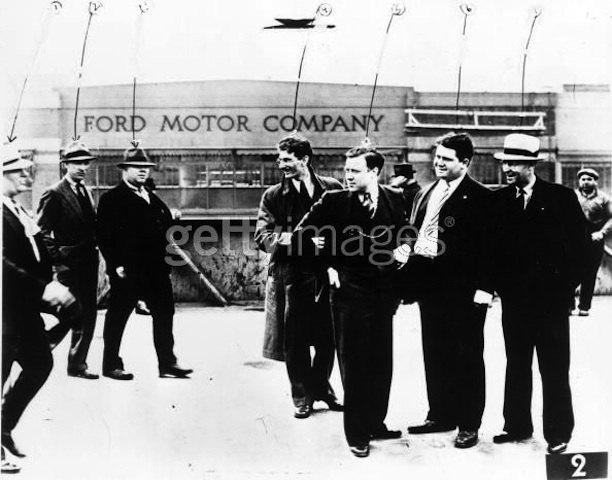
















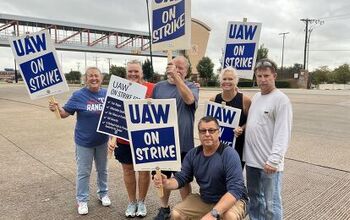
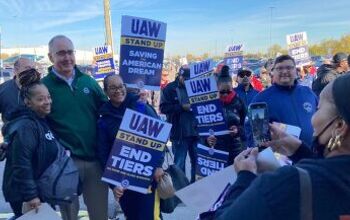
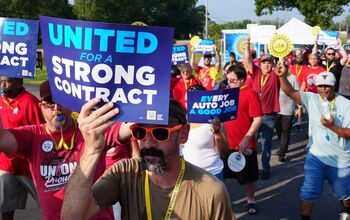
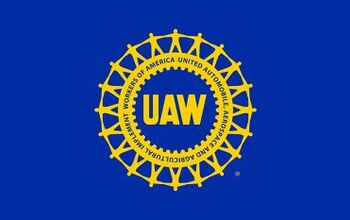










Comments
Join the conversation
no_slusbox-- I'm a city planner. There's really no private sector equivalent so I can't compare (well, maybe my arch-nemesis--the developer. Well, sort of, and I guarantee you they make more) That link you sent me pretty much makes it look like a wash overall. In some professions the private sector pays more, in some professions the public sector does. But do those salary numbers include benefits along with paychecks? All I know is that my friends in the private sector were doing much better than me financially until the recession. Now they're envious. I'm sure the worm will turn the other way, again, in two years though. I picked security over earning potential, and for now I'm glad I did. And I also agree with you that the public sector SHOULD pay less. One should enter government to serve the public, not to become wealthy.